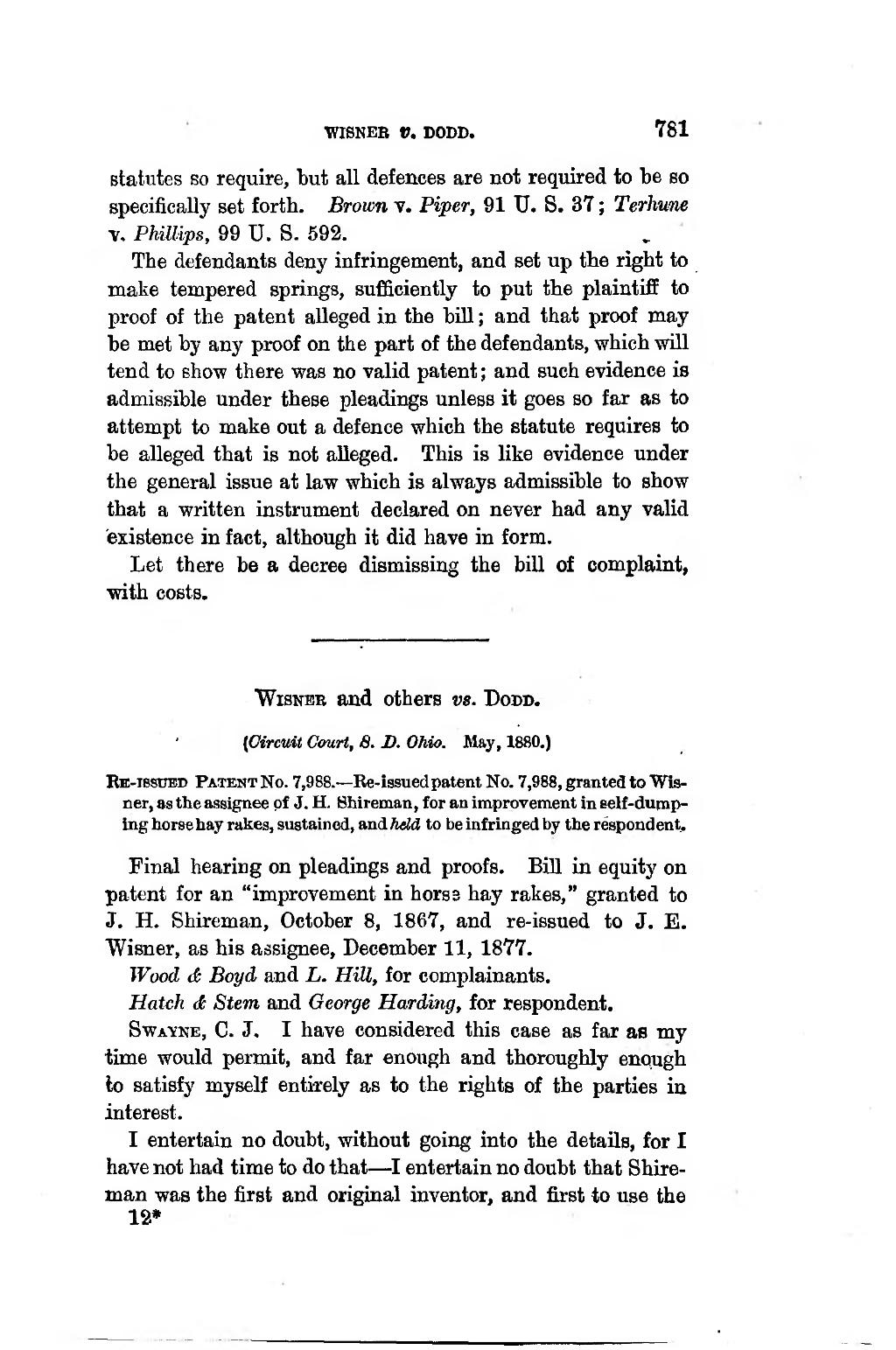statutes so require, but all defences are not required to be so specifically set forth. Brown v. Piper, 91 U. S. 37; Terhune v. Phillips, 99 U. S. 592.
The defendants deny infringement, and set up the right to make tempered springs, sufficiently to put the plaintiff to proof of the patent alleged in the bill; and that proof may be met by any proof on the part of the defendants, which will tend to show there was no valid patent; and such evidence is admissible under these pleadings unless it goes so far as to attempt to make out a defence which the statute requires to be alleged that is not alleged. This is like evidence under the general issue at law which is always admissible to show that a written instrument declared on never had any valid existence in fact, although it did have in form.
Let there be a decree dismissing the bill of complaint, with costs.
Wisner and others vs. Dodd.
(Circuit Court, S. D. Ohio.May, 1880.)
Final hearing on pleadings and proofs. Bill in equity on patent for an “improvement in horse hay rakes,” granted to J. H. Shireman, October 8, 1867, and re-issued to J. E. Wisner, as his assignee, December 11, 1877.
Wood & Boyd and L. Hill, for complainants.
Hatch & Stem and George Harding, for respondent.
Swayne, C. J.I have considered this case as far as my time would permit, and far enough and thoroughly enough to satisfy myself entirely as to the rights of the parties in interest.
I entertain no doubt, without going into the details, for I have not had time to do that—I entertain no doubt that Shireman was the first and original inventor, and first to use the
